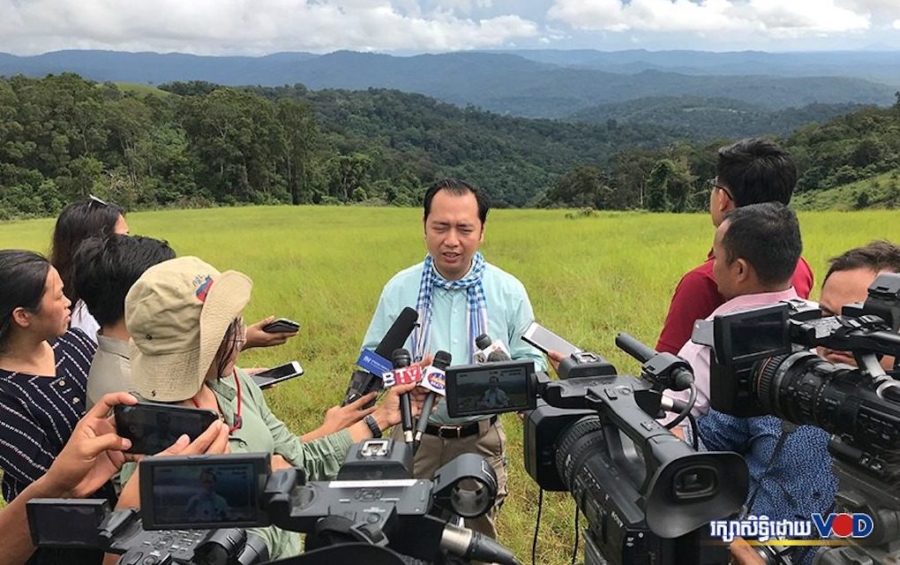The Environment Ministry is studying whether to hand 272 hectares of a biodiversity conservation corridor in Mondulkiri province to the CEO of borey developer Peng Huoth.
According to the company, the CEO, Thay Mengly, already bought the land from locals to use it for a personal conservation and ecotourism resort project, but a local NGO officer said the acquisition was illegal if it was state land and criticized the lack of transparency.
An Environment Ministry statement dated January 25 says officials will investigate a request from the Mondulkiri governor to hand 272 hectares in a biodiversity conservation corridor in Sen Monorom city’s Sokdum and Romnea communes. The governor made the request on December 21, it says.
Ministry spokesman Neth Pheaktra, who led a working group to inspect and study the proposal, said a site visit was conducted on January 27.
“The inspection was based on the request from the province and relevant parties, and the inspection was to see whether it should be given or not,” Pheaktra said.
Asked about whether it was appropriate to privatize a biodiversity conservation corridor, he said, “So far we have not decided.”
Chan Ratha, senior public affairs manager at the Peng Huoth Group, said the CEO, Mengly, had bought more than 300 hectares of land in the area from local people over many years.
But it is now under consideration by authorities because the purchased land was found to be a conservation area, Ratha said.
“It is a personal project of tycoon Thay Mengly to build a conservation ecotourism resort. It is not related to the company, but it is his passion to preserve, and enjoy, the forest and love nature. So he’s looked into a design for the resort project though it is still under consideration,” Ratha said.
Peng Huoth is the developer of several borey projects in Phnom Penh, including the classical-European-styled Euro Park in Chbar Ampov district.
Mondulkiri governor Svay Sam Eang said on Monday that Mengly was not the only one requesting Environment Ministry land.
“There have been more people. I’m not sure how many families, but there have been many families,” Sam Eang said.
A local investigator for rights group Adhoc, Pen Bunna, said the government should not be privatizing land that is a key natural resource.
“We should get rid of the culture of providing gifts or giving things away without transparency,” Bunna said. “Whether or not he bought it from [locals], it’s state land so their agreement is illegal and the state needs to take it back.”
(Translated and edited from the original article on VOD Khmer)













